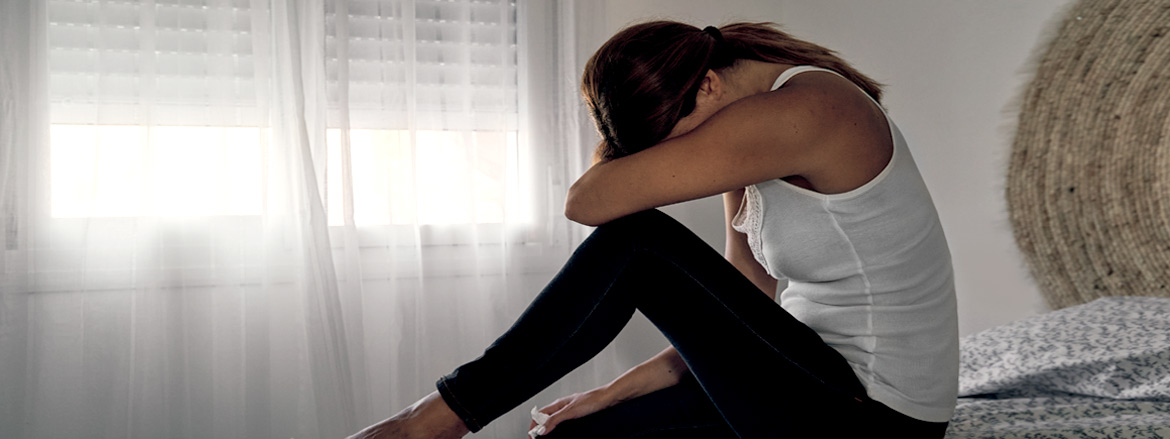How you can help stop gender-based violence
19 December 2021
5
min read
Family, domestic and sexual violence is a major health and welfare issue in Australia. It occurs across all socio-economic, demographic and age groups, but predominantly affects women and children.

Recently, QSuper supported the 16 Days of Activism against gender-based violence, which is an annual international campaign that ran this year from 25 November, the International Day for the Elimination of Violence against Women, to 10 December, Human Rights Day.
The 16 Days of Activism was started by the Women’s Global Leadership Institute in 1991 and continues to be coordinated each year by the Centre for Women’s Global Leadership. This year's event marked the 30th anniversary of the global campaign to tackle gender-based violence and focusses on domestic violence in the world of work.
Gender-based violence in Australia
The most recent statistics1 show one in four Australian women has experienced domestic violence by a current or former intimate partner since age 15.
During the COVID-19 pandemic, gender-based violence has increased.2 During the three months leading up to May 2020, 4.6% of women experienced physical or sexual violence from a current or former live-in partner, with almost two-thirds (65%) of the women saying the violence had started or escalated since the COVID-19 pandemic.
When it comes to the figures on sexual assault alone during the pandemic, the number of sexual assaults that police recorded as cases of family and domestic violence increased by 13% in 2020.3 The figures mean almost two in five victims of more than 10,150 sexual assaults recorded by police throughout 2020 were family and domestic violence related.
What QSuper is doing to help prevent gender-based violence
Since 2016, we have worked hard to support organisations that aim to make a positive difference in preventing domestic violence and improving the lives and futures of people affected by it.
Many QSuper members support domestic violence victims in their roles as police officers, nurses, emergency service workers, teachers, child safety officers, and legal officers. We are proud to stand alongside them to help make a meaningful difference.
Our partnerships to help address gender-based violence include:
DVConnect
Our partnership with DVConnect has funded a full-time crisis counsellor for 4,000 calls per year since 2016, as well as created workplace training workshops for greater business community awareness and action.
RizeUp
We have supported RizeUp, an organisation dedicated to supporting families affected by domestic and family violence, since 2017, and QSuper staff regularly participate with donations and volunteer time to help RizeUp to furnish houses where families can live safely.
Darkness to Daylight Challenge
Since 2017, we have supported this 110-kilometre run/walk event where each kilometre represents a life lost on average, in Australia each year, through domestic and family violence. QSuper employees participate, volunteer and raise funds each year.
Public advocacy
We are an active member of the Queensland Government’s corporate roundtable for domestic and family violence prevention. We were humbled to be named in Queensland’s first Domestic and Family Violence honour roll in October 2020 by the Department of Child Safety, Youth and Women.
Ways you could help
Ending domestic and family violence is the responsibility of all of us. There are many ways you could do your part. According to DVConnect, you could actively play a role in preventing gender-based violence by:
- Helping a friend or family member who may be experiencing domestic, family or sexual violence by learning the signs that they may be experiencing or using violence
- Challenging stereotypes and calling out sexist attitudes and ‘jokes’ that are derogatory towards females
- Speaking out if you hear excuses for violence or victim blaming
- Spreading the word that violence is never an option or a solution and that there is no excuse
What you can do
If you or someone you know is experiencing domestic violence,
please call DVConnect on 1800 811 811 (open 24/7).
If you’d like to arrange some Workplace Domestic Violence Training for your workplace,
reach out to DVConnect at training@dvconnect.org.
1. Media Release, 8 November 2017, Personal Safety, Australia, 2016. “Intimate partner” includes a current or former cohabiting partner and non-cohabiting partners and dates. Australian Bureau of Statistics, at abs.gov.au
2. Boxall, Morgan and Brown, 2020, Australian Institute of Criminology, The prevalence of domestic violence among women during the COVID-19 pandemic, at aic.gov.au
3. Media Release, 24 June 2021, Family and domestic violence sexual assault up 13%, Australian Bureau of Statistics, at abs.gov.au